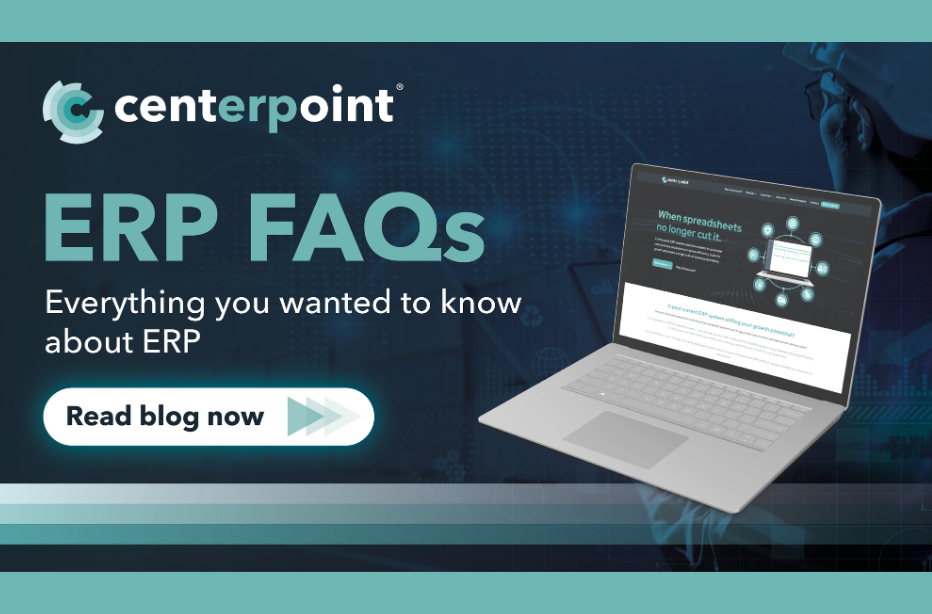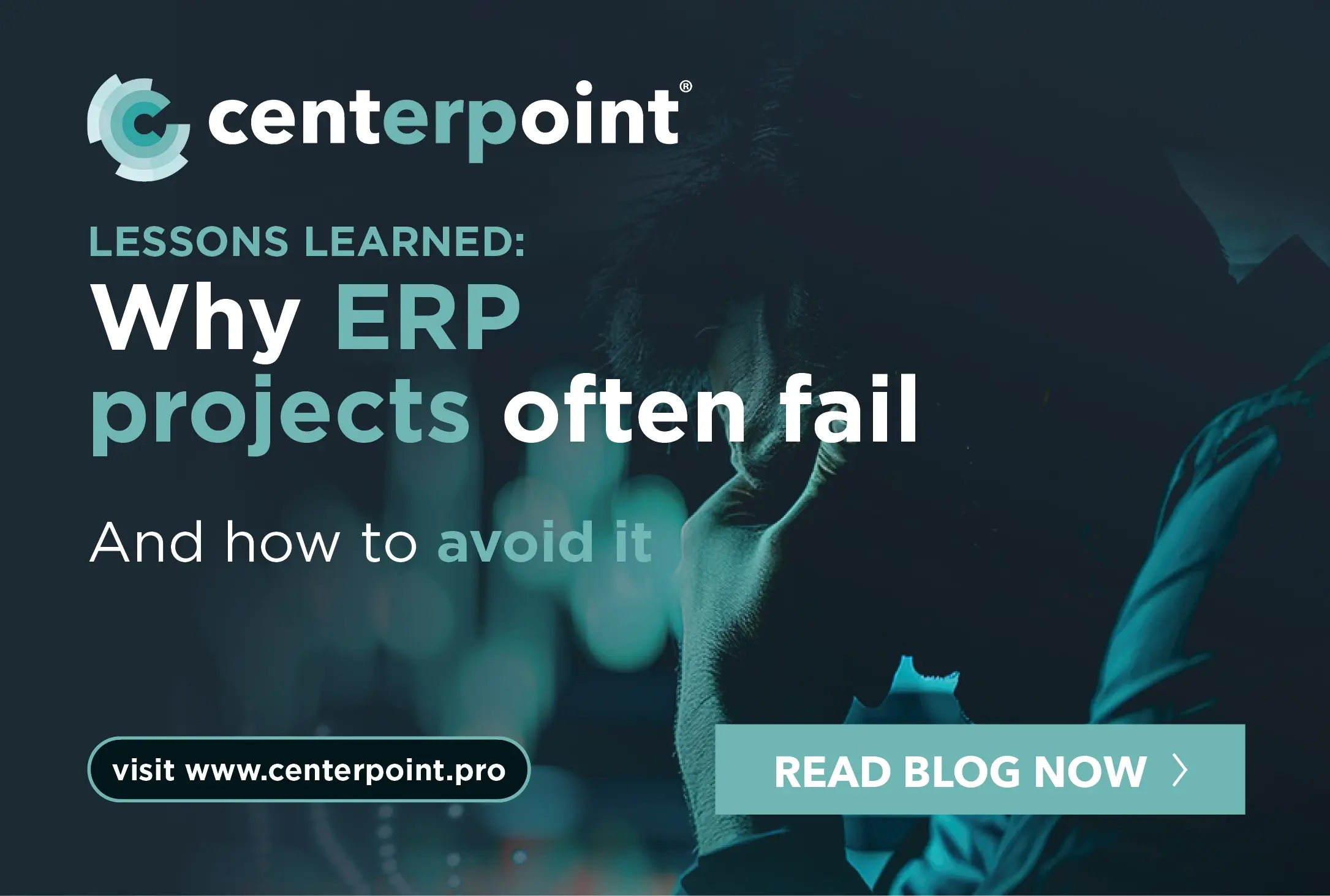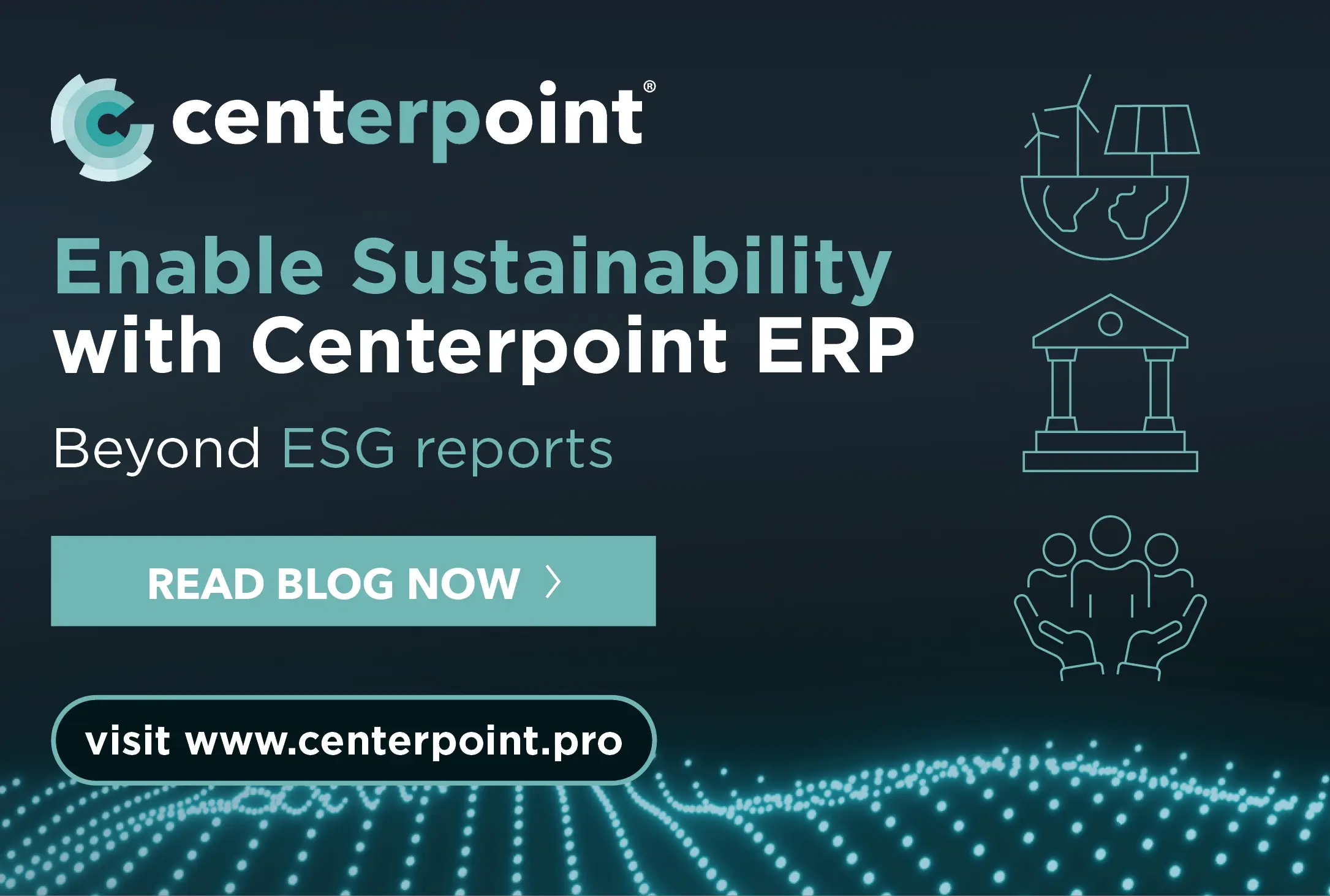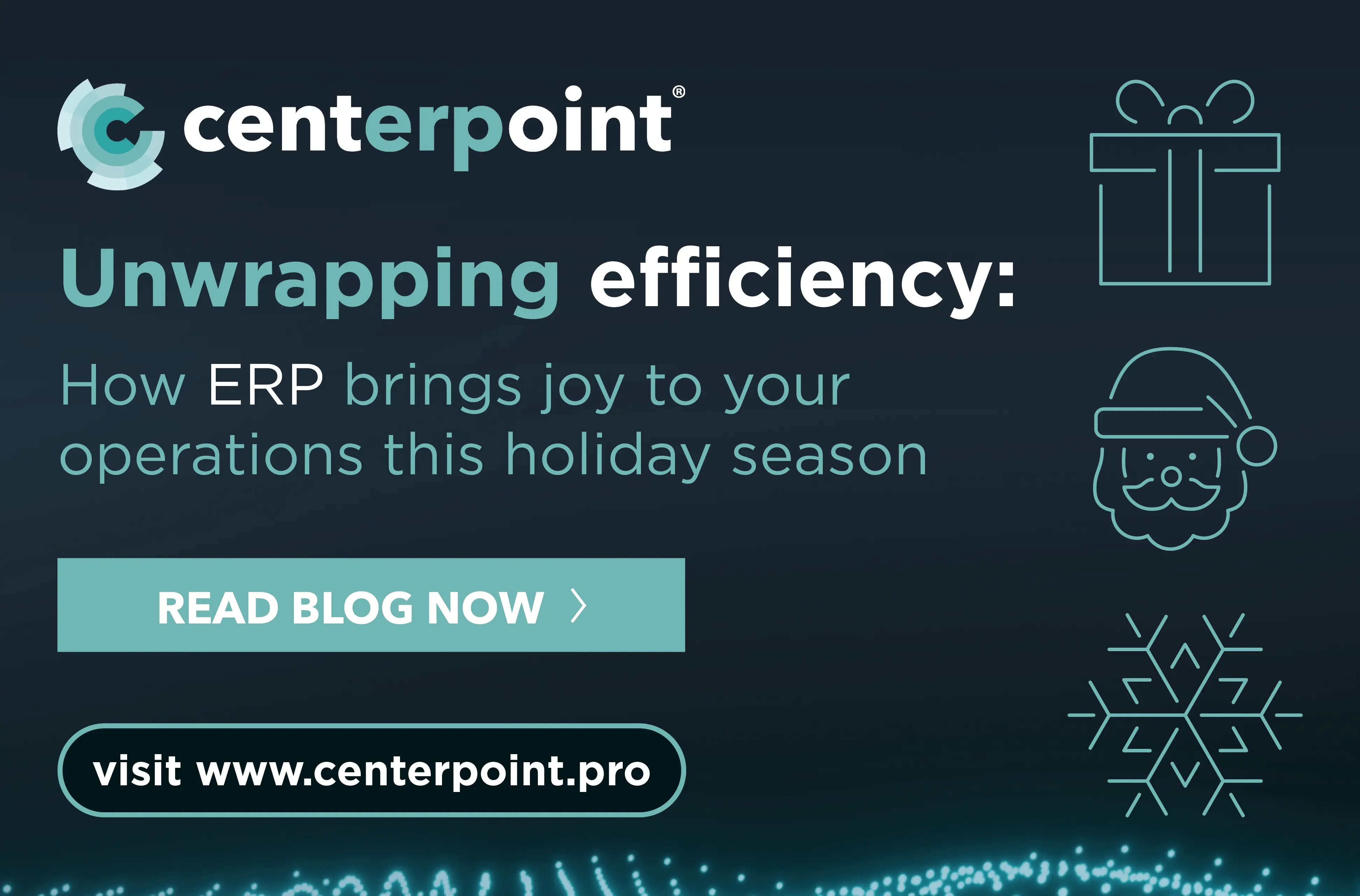ERP software is one of the most powerful tools a business can implement, but it can also feel complex, costly, and overwhelming when you first explore it. This FAQ breaks it down in simple terms, answers the questions most businesses have, and helps you see how the right ERP system can make your operations run more smoothly.
What is ERP software?
ERP stands for Enterprise Resource Planning. At its core, ERP is business management software that connects your departments, automates your workflows, and brings your data together into one system.
Most companies have finance, HR, manufacturing, supply chain, and commerce running on separate tools and spreadsheets. ERP eliminates those silos by unifying your processes, so everyone works from the same set of data, in real time.
If you’ve ever felt like your team spends more time fixing spreadsheets than making decisions, ERP is designed to solve that problem.
Why do businesses use ERP systems?
Businesses choose ERP because they’re tired of disconnected systems, manual data entry, and surprises at month-end.
The benefits of ERP are wide-reaching:
• Greater visibility: You see what’s happening across the entire business, not just one department.
• Fewer errors: Automated processes reduce mistakes and rework.
• Lower costs: Better procurement, inventory control, and resource planning reduce waste.
• Better decisions: Leaders can rely on up-to-date dashboards and AI-powered analytics.
• Scalability: Whether you grow organically or through acquisition, ERP grows with you.
• Resilience: The ability to react quickly when the market shifts or supply chains are disrupted.
In short, ERP gives you control. Instead of reacting to problems, you anticipate them.
What is the difference between ERP vs. CRM?
CRM (Customer Relationship Management) software focuses on the external, customer interactions, marketing and sales. CRM systems manage customer-related factors to increase sales, enhance customer satisfaction and improve relationships. While ERP drives business process efficiency by integrating and streamlining internal business operations.
What business functions can ERP optimise?
ERP can optimise many business functions, the ones we are going to delve deeper into and see how it can increase efficiency, are finance, HR, manufacturing, supply chain management, and commerce.
Finance
• Enhances profitability
• Automated daily tasks, financial processes
• Real-time dashboards
• AI-powered insights
Human Resources
• Hiring, payroll, performance tracking, and any administrative burden reduced
• Identifying potential HR challenges early on
• Workforce planning
Manufacturing
• Optimise project management and production stages
• Increase efficiency for resource allocation and cost management
• Meet delivery timelines with more accuracy
• Process automation
Supply chain management
• Real-time inventory tracking
• Improved visibility across distribution centres and warehouses
• Save time and reduce errors automating manual processes
• Predictive analytics to avoid disruptions and anticipate demand
Commerce
• Increase employee productivity with streamlined workflows
• Optimise inventory and support business growth
• Enhance financial accuracy, and reduce human error
What does ERP implementation involve?
Many businesses worry that implementing ERP means months of disruption, but modern ERP systems don’t have to be painful.
With Centerpoint ERP, implementation is measured in days, not months. We configure only what you need, and we focus on a smooth onboarding process so your teams are confident using the system from day one.
How do I know if my business needs an ERP system?
Good question. Signs you might be ready for an ERP system include:
• Your teams use multiple spreadsheets to track key processes.
• You’re dealing with frequent stock-outs, overstocking, or missed orders.
• Financial reporting takes too long or is full of errors.
• Different departments work from different versions of the truth.
• You feel you’re always reacting to problems rather than preventing them.
If one or more of these sound familiar, an ERP system might be the solution you need.
Is an ERP system only suitable for big companies?
Not at all. Modern ERP software is flexible and scalable, making it suitable for small, medium, and growing businesses. In fact, SMBs often see faster ROI because they can move quickly and implement best practices without years of legacy systems holding them back.
Example of ERP in action
Centerpoint ERP is a practical, fast-to-implement solution designed to streamline operations for growing and established businesses alike.
• Eight configurable modules so you get exactly what you need
• Rapid deployment so you see value in days, not months
• User-friendly interface that reduces training time
Still have questions about ERP software or want to know if Centerpoint is right for your business? Get in touch with us to discuss your requirements and see a tailored demo.

.png)
.png)

.png)




